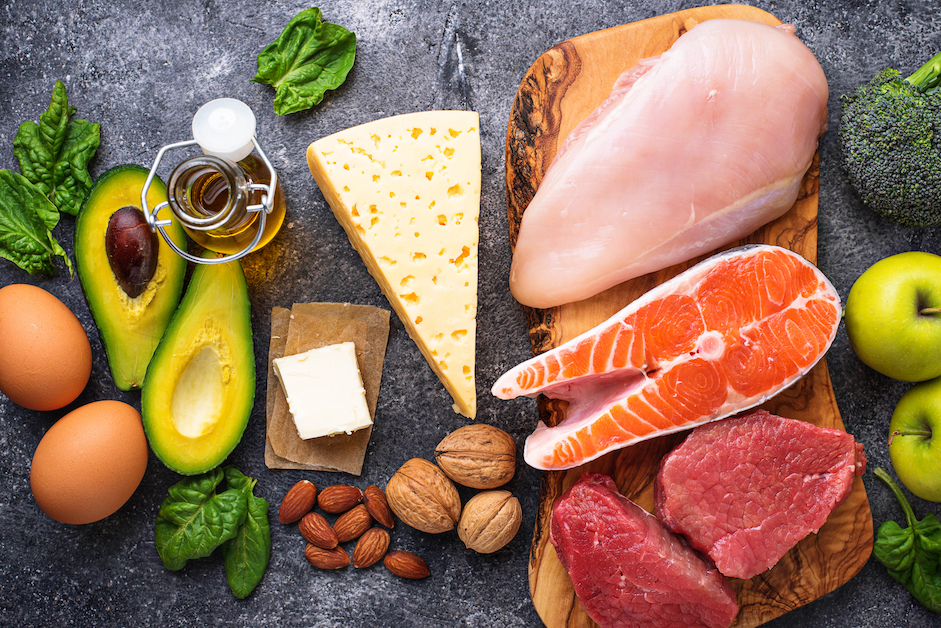Introduction To Keto Diet
Welcome to the ultimate guide to the Keto Diet, your go-to resource for all things related to this popular and effective dietary approach. Whether you’re looking to shed a few pounds, improve your energy levels, or enhance your overall well-being, the Keto Diet can be a powerful tool in your arsenal. In this comprehensive guide, we’ll dive deep into the principles, benefits, and practical tips for following the Keto Diet successfully. So, let’s get started on your journey to a healthier you!
H2: What is the Keto Diet?
The Keto Diet, short for ketogenic diet, is a low-carbohydrate, high-fat diet that has gained significant popularity in recent years. Its primary goal is to shift your body’s metabolic state from relying on carbohydrates for energy to utilizing fats as its primary fuel source. By drastically reducing your carbohydrate intake and increasing your fat consumption, the Keto Diet prompts your body to enter a state of ketosis.
H3: How Does Ketosis Work?
When you restrict carbohydrates in your diet, your body’s glycogen stores become depleted. As a result, your liver starts producing ketones from stored fats to provide energy for your body and brain. This metabolic state is called ketosis. During ketosis, your body becomes highly efficient at burning fat for fuel, which can lead to various health benefits.

H4: Benefits of the Keto Diet
The Keto Diet offers numerous benefits that go beyond weight loss. Let’s explore some of the most notable advantages:
H5: Weight Loss and Improved Body Composition
One of the primary reasons people turn to the Keto Diet is its effectiveness in promoting weight loss. By restricting carbohydrates and increasing fat intake, the body enters a state of ketosis, enabling it to burn stored fat for energy. This leads to a reduction in body weight, improved body composition, and decreased waist circumference.
H5: Enhanced Cognitive Function
The brain is a highly energy-demanding organ, and it typically relies on glucose for fuel. However, during ketosis, the brain can efficiently utilize ketones as an alternative energy source. Many people report increased mental clarity, improved focus, and enhanced cognitive function while following the Keto Diet.
H5: Stable Energy Levels
On a standard high-carbohydrate diet, your energy levels can fluctuate throughout the day due to spikes and crashes in blood sugar. The Keto Diet, on the other hand, provides a steady supply of energy by utilizing fats as a consistent fuel source. This can lead to improved energy levels and sustained endurance throughout the day.
H5: Appetite Control and Reduced Cravings
The Keto Diet has been shown to have appetite-suppressing effects, making it easier to maintain a calorie deficit and control portion sizes. Additionally, by reducing carbohydrate intake, the Keto Diet stabilizes blood sugar levels, which helps curb cravings for sugary and processed foods.
H5: Potential Health Benefits
Beyond weight loss and improved energy levels, the Keto Diet has shown promise in various areas of health:
- Heart Health: The Keto Diet may help improve heart health markers, such as blood pressure, cholesterol levels, and triglyceride levels.
- Type 2 Diabetes: Research suggests that the Keto Diet can be an effective approach for managing and even reversing type 2 diabetes by improving insulin sensitivity and blood sugar control.
- Epilepsy: The Keto Diet has been used as a therapeutic tool for reducing seizures in individuals with epilepsy, particularly children.
- Metabolic Syndrome: The Keto Diet may help alleviate symptoms of metabolic syndrome, a cluster of conditions that increase the risk of heart disease, stroke, and type 2 diabetes.
H2: Keto Diet Guidelines and Food Choices
Following the Keto Diet requires a good understanding of which foods to include and which ones to avoid. Let’s take a closer look at the key guidelines and food choices for a successful Keto journey.
H3: Macronutrient Ratios
To enter and maintain ketosis, it’s essential to adhere to specific macronutrient ratios. The typical breakdown for the Keto Diet is as follows:
- High Fat: Fat should make up approximately 70-80% of your total daily calorie intake.
- Moderate Protein: Protein should account for around 20-25% of your calories.
- Low Carbohydrate: Carbohydrate intake should be limited to 5-10% of your daily calories.

H3: Foods to Emphasize
The Keto Diet emphasizes whole, nutrient-dense foods that are low in carbohydrates and high in healthy fats. Here are some excellent food choices for your Keto journey:
- Healthy Fats: Avocado, olive oil, coconut oil, grass-fed butter, and nuts and seeds.
- Quality Proteins: Grass-fed beef, organic poultry, wild-caught fish, and pasture-raised eggs.
- Low-Carb Vegetables: Leafy greens, broccoli, cauliflower, zucchini, and bell peppers.
- Berries: Limited quantities of low-sugar berries like strawberries, blueberries, and raspberries.
- Dairy: Full-fat dairy products like cheese, yogurt, and heavy cream (if tolerated).
- Nuts and Seeds: Almonds, walnuts, chia seeds, and flaxseeds.
H3: Foods to Avoid
To achieve and maintain ketosis, certain foods should be avoided on the Keto Diet. These include:
- Grains and Starches: Wheat, rice, corn, cereal, pasta, and bread.
- Sugary Foods: Candy, soda, fruit juices, ice cream, and desserts.
- High-Carb Fruits: Bananas, apples, oranges, and grapes.
- Legumes: Beans, lentils, chickpeas, and peanuts.
- Processed Foods: Highly processed snacks, fast food, and packaged goods.
- Unhealthy Fats: Trans fats and vegetable oils (soybean, corn, canola, etc.).
H3: Meal Planning and Preparation
Effective meal planning and preparation are key to successfully following the Keto Diet. Here are some tips to help you stay on track:
- Plan Ahead: Take some time to plan your meals for the week, considering your macros and preferred recipes.
- Prep in Advance: Preparing meals and snacks in advance can save time and ensure you have Keto-friendly options readily available.
- Batch Cooking: Cook large batches of Keto meals and freeze individual portions for easy and convenient access.
- Keep Keto-Friendly Snacks: Have low-carb snacks like nuts, seeds, and cheese on hand for quick and satisfying options between meals.
H2: Frequently Asked Questions (FAQs)
H3: FAQ 1: Can I Drink Alcohol on the Keto Diet?
Answer: While alcohol can be consumed in moderation on the Keto Diet, it’s important to choose low-carb options. Straight spirits like vodka, gin, and whiskey are generally carb-free, but mixers like soda and juice should be avoided. Dry wines and light beers can also be enjoyed in moderation.
H3: FAQ 2: How Long Does It Take to Enter Ketosis?
Answer: The time it takes to enter ketosis varies from person to person. Generally, it takes anywhere from 2 to 7 days of strict carbohydrate restriction to deplete glycogen stores and transition into ketosis. Some individuals may experience a “keto flu” during this transition period, with symptoms like fatigue, headache, and irritability.
H3: FAQ 3: Can I Follow the Keto Diet if I’m a Vegetarian or Vegan?
Answer: Yes, it’s possible to follow a vegetarian or vegan version of the Keto Diet. Instead of animal-based proteins, you can rely on plant-based protein sources like tofu, tempeh, seitan, and plant-based protein powders. Additionally, you can include high-fat plant foods like avocados, coconut oil, nuts, and seeds.
H3: FAQ 4: Are There Any Side Effects of the Keto Diet?
Answer: While many people experience positive effects on the Keto Diet, some individuals may initially encounter side effects known as the “keto flu.” These can include fatigue, dizziness, nausea, and constipation. However, these symptoms are often temporary and can be alleviated by ensuring proper hydration, electrolyte balance, and gradually transitioning into ketosis.
H3: FAQ 5: Is the Keto Diet Suitable for Everyone?
Answer: The Keto Diet may not be suitable for everyone, especially those with certain medical conditions or dietary restrictions. It’s crucial to consult with a healthcare professional before starting any new diet, particularly if you have diabetes, liver or pancreatic conditions, or a history of disordered eating.
H3: FAQ 6: How Long Can I Follow the Keto Diet?
Answer: The length of time an individual follows the Keto Diet can vary depending on their goals and health status. Some individuals may choose to follow it for a few weeks or months for short-term weight loss, while others may adopt it as a long-term lifestyle. It’s important to listen to your body and make adjustments as necessary.
Conclusion
The Keto Diet is a powerful dietary approach that can help you achieve your health and wellness goals. By following the principles of low-carbohydrate, high-fat eating, you can experience weight loss, improved energy levels, enhanced cognitive function, and numerous other benefits. Remember to consult with a healthcare professional before starting any new diet, and tailor the Keto Diet to fit your individual needs and preferences. Embark on your Keto journey with determination, patience, and a focus on nourishing your body with wholesome, Keto-friendly foods.


